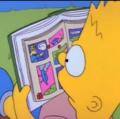Dante Readline reviewed Babel-17 by Samuel R. Delany (Ace book 04591)
delany is a human thesaurus for the word 'horny'
5 stars
amazing style for scifi from 66, the babel / sapir-whorf thing is less interesting than the insane amount of biomoded space-sailor furry fighting and fucking he manages to shoehorn in.
he's running laps around stuff from the same time period, most shit then was like 'we got shrunk down to the size of atoms and theres little racist depictions of tribal people trying to kill us with spears' while delany is like 'i can't pilot this hyperdimensional spaceship anymore becuase im sad about the cyberghost of my girlfriend's girlfriend (who had surgery to get giant muscles to win contests in zero-g wrestling matches)'
amazing style for scifi from 66, the babel / sapir-whorf thing is less interesting than the insane amount of biomoded space-sailor furry fighting and fucking he manages to shoehorn in.
he's running laps around stuff from the same time period, most shit then was like 'we got shrunk down to the size of atoms and theres little racist depictions of tribal people trying to kill us with spears' while delany is like 'i can't pilot this hyperdimensional spaceship anymore becuase im sad about the cyberghost of my girlfriend's girlfriend (who had surgery to get giant muscles to win contests in zero-g wrestling matches)'





